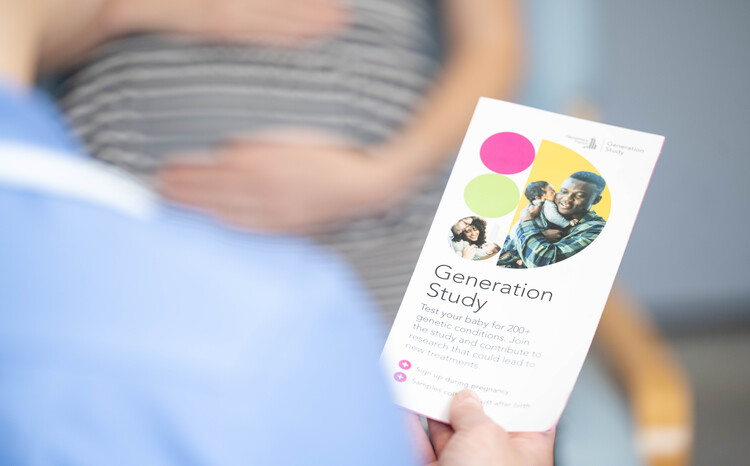More than 600 expectant parents have signed up to a study at Sheffield Teaching Hospitals NHS Foundation Trust, as part of nationwide plans to screen 100,000 babies for more than 200 rare genetic conditions at birth.
The study, led nationally by Genomics England in partnership with NHS England, is running at almost 50 NHS hospitals including the Jessop Wing specialist maternity unit in Sheffield.
Using whole genome sequencing, hundreds of rare but treatable genetic conditions that appear in the first years of life can be spotted earlier through a newborn baby blood sample, usually taken from the umbilical cord, at birth.
Earlier diagnoses of these conditions enable early access to treatment, monitoring and the right support from the NHS, rather than waiting for symptoms to appear later in childhood.
Natalie Khoaz, research midwife at Jessop Wing and principal investigator for the Generation Study in Sheffield, said: “We are really proud of our midwives and the whole Jessop Wing Generation study team for reaching this recruitment milestone less than nine months after opening.
“The NHS 10 year health plan cites the Generation study as a key way to improve future health outcomes and by diagnosing any of the 200 plus genetic conditions at the earliest opportunity, patients will have access to early treatment and support, improving outcomes and quality of life.
“Early diagnosis can also better support parents and carers in dealing with the impact of potentially life-altering diagnosis in children and better plan for their care.
“This is a simple, transformative programme which we urge all parents-to-be to consider.”
Midwives from the Jessop Wing specialist maternity unit hit the recruitment milestone after launching as a Generation study research site in December 2024.
Expectant parents agreeing to take part in the study will have their decision confirmed by a member of the Jessop Wing research team before a cord blood sample is taken and sent for DNA extraction and sequencing.
If a condition is detected, families and carers will be provided with further NHS testing to confirm the diagnosis. Results are then reviewed by NHS genomic scientists, with the aim of sharing with parents if a condition is suspected.
Participants will also receive ongoing support and treatment from the NHS, which will be provided by paediatric experts at specialist children’s hospitals for expectant parents at the Jessop Wing.
The Generation study will allow the NHS to assess the risks and benefits of storing and tailoring care around an individual’s genome over their lifetime and will be used to inform the longer-term ambition to make genomic sequencing at birth universal.
Meanwhile, the government is creating a genomic population health service, building on the existing NHS Genomic Medicine Service, to enhance the identification, prevention, diagnosis and treatment of conditions such as cancer, heart diseases, and rare genetic disorders.
Under the plans, nurses across England will be trained as ‘genomics champions’ to identify patients suitable for genomic testing and support them to access genomic counselling if needed.

